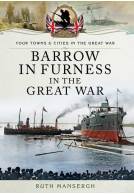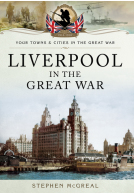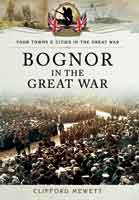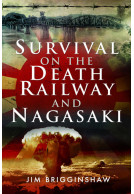Lancaster in the Great War (Paperback)
Imprint: Pen & Sword Military
Series: Your Towns & Cities in The Great War
Pages: 116
Illustrations: 100
ISBN: 9781473846111
Published: 6th April 2016
(click here for international delivery rates)
Order within the next 5 hours, 55 minutes to get your order processed the next working day!
Need a currency converter? Check XE.com for live rates
| Other formats available | Price |
|---|---|
| Lancaster in the Great War ePub (19.8 MB) Add to Basket | £6.99 |
Although Lancaster was the ancient County town, it had a population of only 40,000 in 1914. Of these, it is thought that some 5,000 men saw war service between 1914-18, and over 1,000 did not return. In consequence, the recruiting drives, the tribunals to consider exemption from 1916, and the ever-growing casualty lists provide the main theme for this book.
Some 3,000 men had volunteered by December 1914, to join those already serving. While the depot of the King’s Own Royal Lancaster Regiment was in the town, about eighty regiments had Lancaster men in their ranks, and both the casualty lists and the awards for gallantry reflect this.
The town was out of range for shelling from the sea, or aerial bombardment, but did experience an explosion at its munitions factory in 1917. Apart from this, the mayor and council endeavoured to continue with their primary duties as far as possible in running the town.
As featured in 'further reading' section part of researching routes in Lancaster article.
Your Family History magazine, May 2017
A good starting point for anyone wishing to find out more about Lancaster and it's men, women and Children in the Great War. Contains many references to individuals, both military and civilian, and some information about the town's war memorials.
Western Front Association
This is an excellent and growing series of books from Pen & Sword.
ARRSE - Jean Sinclair
Read the review on ARRSE
About John Fidler
John Fidler was born in Northumberland in 1936 and was educated at Carlisle Grammar School and Keble College, Oxford. During National Service he held an aircrew commission and trained in Canada as a navigator. He taught history at Lancaster Royal Grammar School from 1962-97 and then served as Admissions Tutor until 2013. He published a history of the Royal Grammar School in 2009 and, at the request of the Lancaster Maritime Museum, researched and wrote a booklet about the six ships of the Royal Navy, which, since 1694, have borne the name HMS Lancaster.























